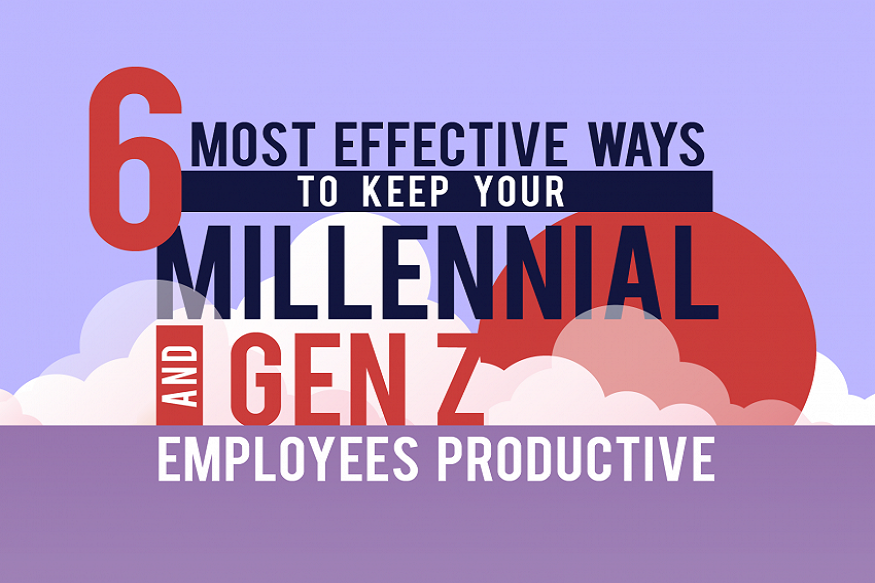Millennials are young people born between the 80s and the end of the 90s. They are therefore 30 years old today and their weight represents 2.4 billion, or 32% of the world’s population. The ratio is 23% in France.
This generation, which has grown up with the adoption of new technologies, stands out for its great ability to marry the virtual with the real. It is for this reason that they are nicknamed the Digital Natives. But how, when they live in a world where illusion, influence, dreams feed their sweet daily hopes, can they integrate the very real and concrete world of business and work? Can this generation, which no longer has the same relationship to effort, nor the same needs, adapt to the system or, on the contrary, be a driving force in “inventing” the work of tomorrow?
Millennials and work: the company must innovate
For 93% of active 20-30 year olds, having an income is the primary and unavoidable reason for working. Personal growth, self-realization and skills development tied for second place. For these young professionals, unpredictability, permanent change or a non-linear career are not perceived as problems but as input data. As such, they have understood the issue of skills development which is directly linked to their employability, the key to permanent adaptation.
The World Economic Forum estimates that 65% of the jobs that today’s primary school children will do do not yet exist. These digital natives have understood an essential point: you have to learn to learn . It’s an approach that is natural for this generation… And it’s all the more interesting that we perceive it in all countries and on all continents. These young people “peck” on the internet. As parents, we can sometimes find this surprising to observe, but keep in mind that this “snacking” of information is a wonderful way to acquire knowledge.
Young workers and HR managers have a positive and confident perception of the company’s ability to face the challenge of digital transformation: 71% of 20-30 year olds think that their company is well “armed” to face this challenge. When we ask Millennials about the three main challenges of their company in terms of human resources, it is interesting to note that they are more sensitive to the quality of management, the salary and the quality of working conditions than to the prospects. careers.
The view of 20-30 year olds on their current job
Generation Y vs Generation X. These young employees have an overall positive appreciation of their job: 66% of them perceive their start of career as more interesting and more open than that of their parents, with however marked nuances between CSP (79% among executives versus 58% among blue-collar workers) and according to status in the company (72% among managers versus 63% among non-managerial employees).
Millennials do not find themselves in the current operation of companies. Money, success, are goals that now take second place. We know that people under 30 today favor values such as well-being at work and taking privacy into account. You have to know how to be flexible in the way of working and on the schedules, increase the quality of life at work, adopt a flat management or even bet on collaborative work.
Each generation is characterized by its codes, its uses and its commitments. The Millennials have been immersed in the digital age, which has opened up the field of possibilities to them, unlike previous generations. Much more independent than their parents, they always question everything and want to find meaning in their lives, even through their professional activity. They seek to live more experiences in their daily life and this need extends into the sphere of work. Young workers are in fact fond of experiences that give meaning to their professional life. Functions such as the Chief Happiness Officer, Serious Games, meditation sessions, convivial After-works are markers of the new forms of experience experienced at work by the “Digital Native” generation. The traditional levers of employee motivation are therefore changing with the arrival of the Millennials, who give a hard time to business leaders who are sometimes overwhelmed by the expectations and behavior of this generation. So, how to recruit and keep these young talents in the company, an issue at the heart of the sustainable growth of economic structures?
Increased flexibility
Millennials are on the move . They like to travel and be free. This need for independence is complicated to manage for a company that wants to stabilize and retain its employees. It must therefore show flexibility, in particular, in the first place, for working hours. For Millennials, it is not their presence in the office that is important but the result of their actions. Late awakenings, important or complicated family life, it is necessary for companies to adapt and let them organize themselves. Of course, you need rules, duties and obligations… but you have to learn to give them time to manage their time.
These young professionals make it a point of honor to find a balance between their professional life and their personal life. This is why companies must be flexible in terms of working hours and the ” home office “. Millennials have no problem working later or coming in earlier, as long as their personal lives remain prominent. The widespread introduction of teleworking is major for them. Being able to work from home is often a strong argument for winning them over.
We are also seeing the emergence of a new concept: the “ flex-office ”. This consists of giving employees complete freedom over the offices they will use. They can thus work from home or in more original workplaces, where they feel better, where they break the daily routine.




